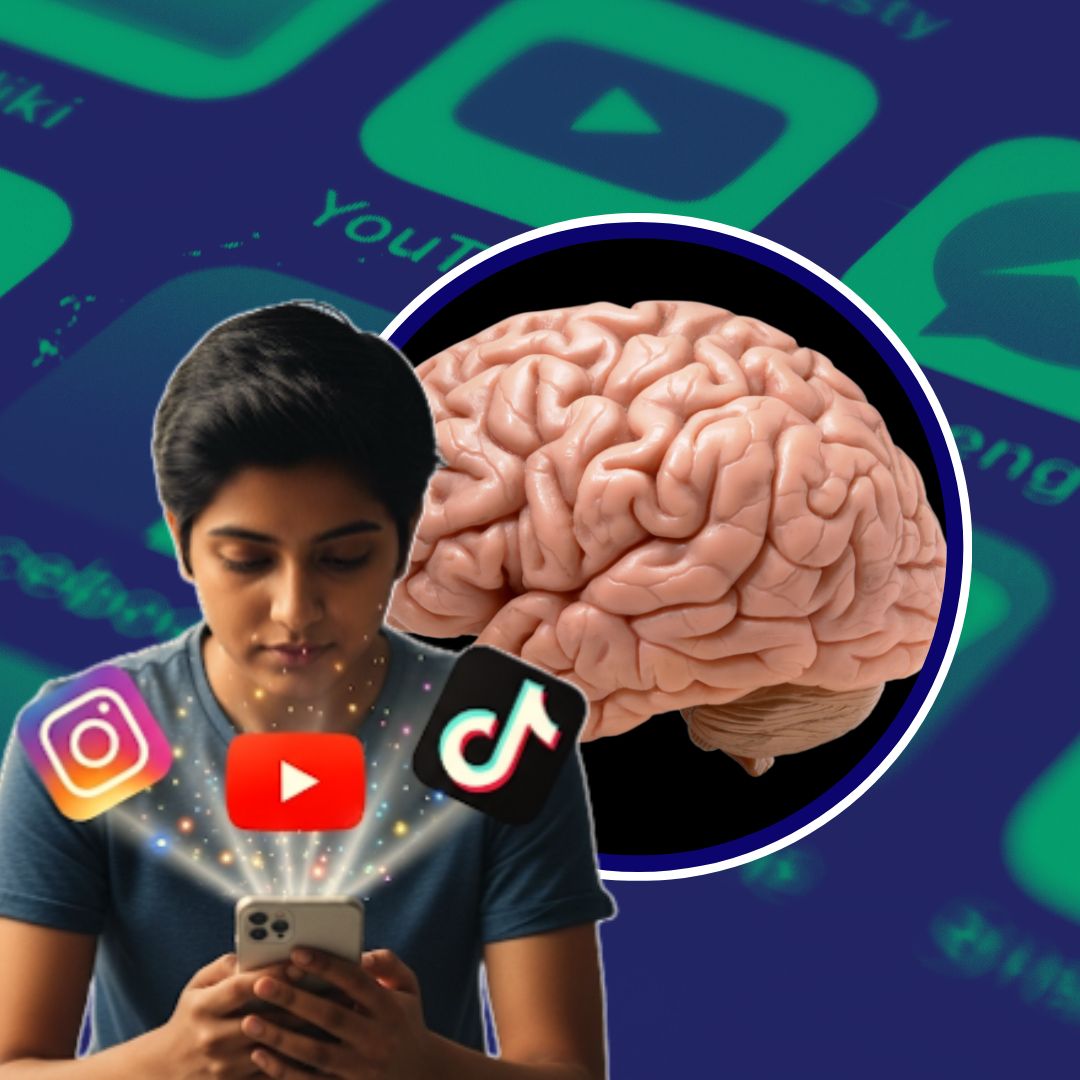Neuroscientists and health experts are increasingly alarmed by the effects of short-form videos on platforms like Instagram Reels, TikTok, and YouTube Shorts, warning of addiction-like brain responses. Recent 2025 studies document that heavy users experience activation of the brain’s reward systems similar to the effects caused by addictive substances such as alcohol or gambling.
Indian neurologists also caution about risks of impaired attention, memory, and motivation stemming from prolonged exposure. With millions of young users engaging daily, experts call for greater awareness, digital literacy, and behavioural interventions to prevent lasting cognitive and mental health problems.
Short-Form Video Viewing and Brain Health: The Emerging Evidence
Cutting-edge research published this year reinforces earlier findings that overconsumption of short-form videos triggers intense dopamine release, targeting neural circuits associated with pleasure and reward.
Professor Qiang Wang’s team at Tianjin Normal University used advanced brain imaging techniques to demonstrate that excessive short-video consumption increases activity in the ventral striatum and orbitofrontal cortex, areas critical in addiction pathways. Additional studies from 2025 reveal a concerning reduction in grey matter volume in regions linked to executive control and memory among heavy viewers.
Dr. Suresh Kumar, neurologist in New Delhi, explains, “These neural changes may underlie difficulties in sustaining attention and increasing impulsivity, translating into everyday challenges at school, work, or social interactions.”
Who Is Most at Risk?
Findings from studies involving adolescents and college students indicate that early and frequent exposure makes younger brains more vulnerable to rewiring effects. Gender differences were also observed with female users showing higher rates of compulsive short video engagement and related depressive symptoms. Stress and anxiety were identified as mediators that worsen the addictive cycle, creating a feedback loop where users consume more to escape negative feelings.
“The rapid, unpredictable format of these videos enhances their addictive potential by constantly offering new stimuli which hijack the brain’s natural reward system,” says Dr. Ayesha Bal, clinical psychologist working with youth digital addiction cases in Mumbai.
Cognitive and Psychological Consequences
Longitudinal studies are now linking heavy short-video use with symptoms of burnout, reduced motivation, and even impaired decision-making. One notable paper demonstrated that addicted users exhibit increased loss aversion and slower evidence accumulation when making choices, suggesting cognitive fatigue and compromised judgement.
Academic performance and social relationships can suffer, as excessive screen time contributes to procrastination and reduced face-to-face interactions. Sleep disturbances, contrary to earlier speculations, seem less directly affected, but stress related to content addiction plays a significant role in overall wellbeing.
Expert Advice: Minimising Harm from Short-Form Video Addiction
Experts agree on practical steps for users and families to mitigate risks. Doctors advice, “Setting clear time limits on app usage, removing auto-play features, and encouraging activities that engage different brain functions such as reading, outdoor play, or hobbies can help rebalance stimulation.”
Psychologist Dr. Ayesha Bal adds, “Parents should foster open conversations about screen habits with their children and model balanced digital behaviour themselves.” Educational institutions are encouraged to integrate digital wellbeing modules within curriculums, promoting self-regulation skills early.
For policymakers and platform designers, recommended measures include age-appropriate content filtering, transparency in algorithms, and better warning systems about addictive patterns.
The Logical Indian’s Perspective
In an era where much of our social and creative life happens online, recognising and addressing the risks attached to the design and consumption of short-form videos is crucial for public health.
The Logical Indian champions a mindful approach to technology use that respects mental health while embracing innovation. Promoting kindness, empathy, and community awareness around digital addiction supports both individual growth and societal harmony.












